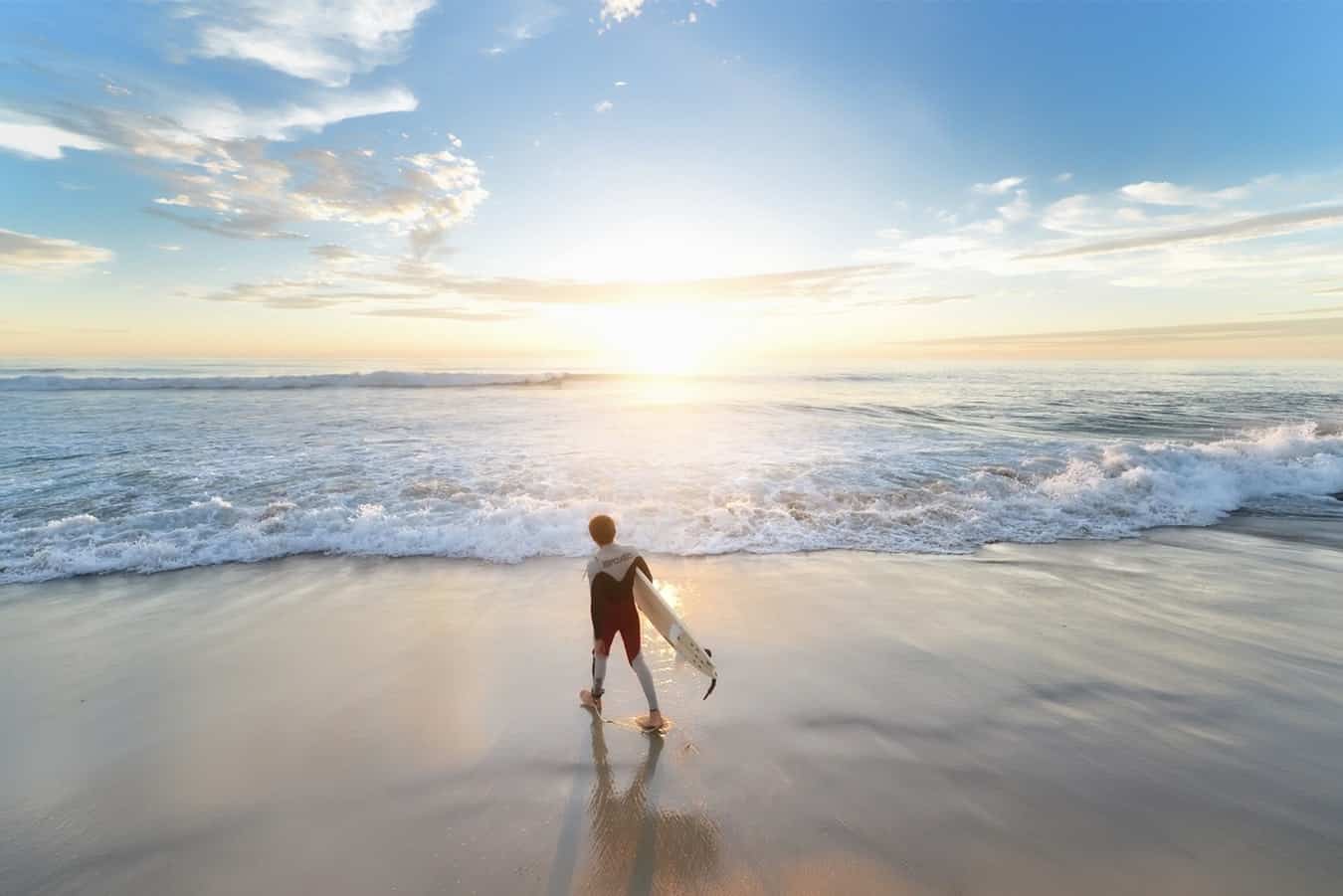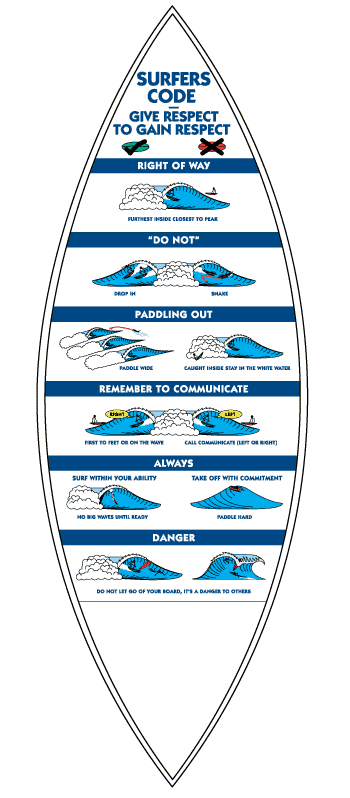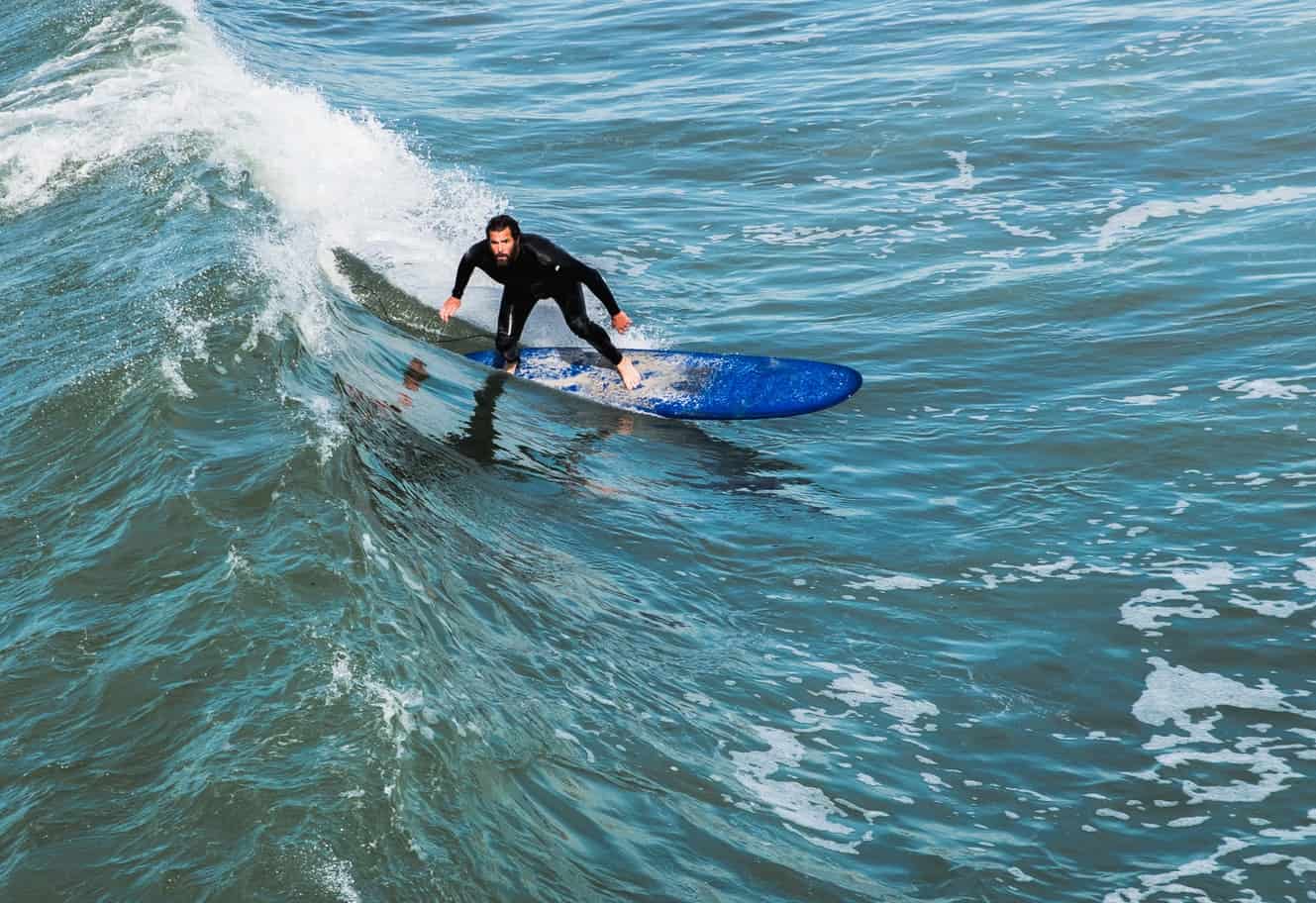Surfing is an activity that most people have on their bucket list, however it is also one that many people are reluctant to try. As a surfer and a coach for nearly 15 years, the number one reason people give me for not learning is because they think it’s too dangerous. Well I’m here to tell you that it is not.
Is surfing dangerous for beginners? Surfing isn’t any more dangerous to beginners than it is to experienced surfers. The reasons may shift or evolve as you advance but the sport itself is generally safe for anyone. What can make surfing dangerous is ignorance and arrogance.
What sort of dangers and risks come with learning to surf? What can you do to prevent injuries or accidents and how can you be prepared for them when they do happen?
What are the Surfing Hazards as a Beginner?
One of the most dangerous aspects of surfing, especially for beginners, is other surfers and their boards (be mindful of your own). Other things include riptides, rip currents and undertows, waves, shallow water, sea life (not just sharks), sunburn and dehydration as well as over estimating your skillset. Taking a surf lesson is a great way to be introduced to surfing and a good instructor will go over everything you need to know as a beginner.
Surfing, no matter how good you are, will always come with bumps, bruises, cuts and scrapes. There are steps you can take to minimize your chances of hurting yourself or others. You should always be aware of your surroundings. Pay attention to what is going on in front of you, behind you as well as to your left and right. Before you walk into the water, take a look around and notice how crowded the waves are and if there are other obstacles like swimmers,rocks or pier pilings. Once you are in the water with your board, take a look around again from the perspective of the ocean and choose a point of reference like a lifeguard stand or colorful umbrella.
Before you paddle into a wave, always always always look both ways before taking off. You always want to be in control of your surfboard so that it doesn’t hit you or someone else which can cause injuries.

Rip Currents typically form around sandbars, fishing piers and jetties and are caused by wave action. A rip current pulls away from the shore and into the ocean, sometimes surfers will use these currents to easily get into the line up but as a beginner you should avoid rip currents for now. If you find yourself caught in one, you want to paddle parallel to the beach and avoid fighting against the current. Worse comes to worse, you just let the current take you out and ride a wave back in.
Rip Tides are different from rip currents because they are predictable and happen around inlets as the tide drops. Depending on where you are surfing or what type of beach your surfing at you should pay attention to the changing of tides.
Undertows happen when the waves are bigger or there is a storm coming, making the waves choppy and inconsistent. This can lead to the wave crashing on you in shallow water, making it hard to get out of the waves.
Waves can be bigger and more powerful than they appear, especially when watching more experienced surfers out in the lineup. As a beginner, you will most likely start in the whitewater where the water is more shallow, so you will want to avoid diving off your board.
Contrary to popular belief, shark attacks are not that common in the surfing world. While they are around and you may see them; jellyfish, stingrays, sharp shells and crabs tend to be a bit more common. A good practice to get into is to shuffle your feet through the sand as you walk into the water. Another thing to watch out for is holes and getting tangled in your leash – both are embarrassing ways to twist your ankle in front of a crowded beach.
Sunburn and dehydration can be a very real thing. Surfing becomes addicting and hours can pass by without you even noticing. It is important, even on cloudy days, to apply and reapply sunscreen. Zinc or sunscreen specifically made for watersports are good options( look for reef and ocean friendly companies). Drink plenty of water before and after surfing. Make sure you eat enough food, surfing requires a lot of energy so fuel up!
What Are Some Tips for Beginners to Stay Safe?
1. Take a lesson
Whether it’s in your hometown or on vacation, your first time surfing will be more enjoyable and productive if you go with an instructor. There are endless possibilities when it comes to lessons. Most places offer group and private lessons and some shops offer surf camps. Each type offers different pros and cons.
It is better to take a lesson because instructors and coaches give you tips and details that will make your first time surfing successful. They should set you up with the right type of board to learn on ( in this case – the bigger the better is always true),a wetsuit (if needed), give you step by step instructions on how to do a proper pop up, the best way to paddle as well as safety rules and tips to keep yourself and everyone around you safe. They should teach you parts of the board and when the right time to “pop up” is while they are pushing you into waves. Lessons are ideal because they provide real time feedback where you can instantly make a correction and experience the difference.
2. Spend time on the beach
as awkward as it looks and feels, practicing pop ups on the beach makes it easier to do them in the water. It is known as “muscle memory”, the more times your body does something, the less your brain has to think about it and the movements become automatic. It is very different doing a pop up in the water than it is on the beach, so practice practice practice.
3. Don’t Rush your pop up
Your popup is a key part of surfing and many people feel like you need to get up quick, but it is more important to get up smoothly and to make sure your feet are in the correct spot.
4. Practice sitting on the board
It might look easy, but sitting on a board can be a little unbalanced and may make you feel clumsy. To sit on a surfboard, you’ll want to straddle it like a horse. It might take a little maneuvering, but find a spot, typically in the middle of the board where you feel balanced. If you need to turn around you can either swirl your ankles in little circles, or lay back down and paddle with your arms. Practice both while you’re out in the water.
5. Spread out
I know it may seem fun to sit in a tight pack of your friends but as beginners you should spread out so that you don’t get tangled in each others leashes or run into anyone, accidentally hurting them or yourselves.
6. Get to know the spot you are surfing
Spend time watching the spot where you’ll be surfing. Watch where other people are surfing, where they are paddling out, where the waves are breaking and take notice where the beginners are surfing and stay away from the more experienced surfers – for now.
7. Always bend your knees
When you bend your knees you create more balance, stability and mobility.
8. Get out of the way!
This may seem obvious, but if someone is coming towards you, move. Not only is it good for safety, but it’s also a common form of etiquette in the water.
9. Stretch
It’s important to stretch before and after surfing. Stretching before surfing can help you remain nimble in the water.
10. Keep your eyes up
You always want to keep your eyes up and you may hear the phrase “where you look, you go”. For example, once you’re standing, keep your eyes up, looking towards the beach. If you look down at your feet, you’ll fall face first into the water.
11. Always wear a leash
The leash keeps you attached to the board, while it is not a floating device, it will help from losing your board and having it hit someone else.
12. Know your skill set
Avoid going out in waves that are too big with you or places that are not meant for beginners. A good saying to keep in mind is “when in doubt don’t go out”.
Always surf with a buddy or at least let someone know where you are surfing and how long you expect to be surfing. Unless you are very familiar with a spot, it is not recommended to ever surf alone.
13. Respect the ocean and respect other surfers
Don’t be afraid to ask questions
Especially when you are at a new spot. Sit back, relax and watch from the beach for a little bit. Sometimes it’s easy to talk to surfers coming out of the water, leading to a wealth of information.
14. Let people give you advice.
If you are going for a wave, commit to it and don’t stop paddling, but if you see a lot of other people going, maybe pull back.
15. Learn the surfer’s code

What Should You Expect as a Beginner Surfer?
- You will be in water at least waist deep so if you or your kid who is taking a lesson, doesn’t know how to swim or is afraid of the ocean – learning to surf may not be that enjoyable. This may seem obvious but I have had numerous kids in lessons that are terrified of the ocean but are taking the lesson because their parents made them.
- You will most likely start on the beach and then work your way to the white water, so be patient and listen to your instructor because they are there to help you catch waves.
- You’re going to be very tired and sore in places you probably didn’t even know existed. Surfing is very active and you use all of your muscles, you might even feel sore for days after.
- You won’t catch every single wave every single time, no one does and no one ever will.
- Wipeouts are a part of life. Some might be worse than others. When you wipe out, protect your head with your hands or arms. Sometimes your board will fly into the air and your leash pulls it back down and you don’t want to get hit with that.
- Bumps and bruises will appear out of nowhere.
- Accidents happen, so learn to say sorry. If you accidentally cut someone off or get in someone’s way, take responsibility and go out of your way to apologize.
- You’re going to fall, you might even fall a lot but it is all part of learning to surf.
- You will probably feel awkward and clumsy.
- You’re going to have a lot of fun.
- You’ll stand up, even if it is for a little bit and you’ll find that with each wave you are able to stand a little bit longer.
- Your life will change. Yes, it’s cliche but surfing is addictive.
In my opinion, the most dangerous part of surfing is how addicting it is. You might find yourself running late to school or work because you just needed “one more wave”. You might find that friends, family or partners fall by the wayside causing arguments and hurt feelings. Then you quite possibly could find yourself spending all your time and money looking for waves all over the world.
In reality, the most dangerous aspects of surfing can be prevented or prepared for just by being cautious and paying attention to your surroundings.
There is just something about surfing that will change your life. It is a thrilling experience whether you try it just once or if you make it a lifestyle. Catching your first wave is an indescribable experience and will instantly make you forget about anything you might have been nervous about or perceived to be dangerous.
Related Questions:
What are the biggest mistakes beginner surfers make?
- Nosediving, this is when the nose of the board sinks under the water causing you to miss the wave or “go over the falls”. It happens when you are too far up on your board, so just remember to keep your feet all the way on the back of the board.
- Keep your feet together when you’re paddling.
- People stop paddling too soon. Always give a couple extra paddles.
How do I know when I’m ready for the next level of surfing?
Surfing is a very personalized activity. But if you feel confident enough that you can keep yourself and others safe, stay in control of your board and are catching more waves than missing, then you’re probably ready to move on from whitewater to the green or unbroken waves.
When should I buy my own gear?
You should look into buying your own gear if you are surfing more than a couple of times a month. Your local surf shop can help you find the right board and the correct sized wetsuit.

